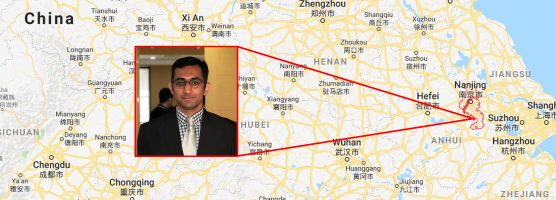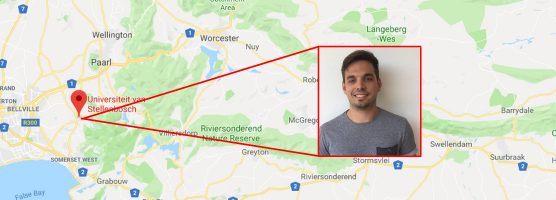Posted August 12th, 2019
New correspondent: Alisa Rekunova from Tallinn University, Estonia
Today our team was strengthened by a student from Tallinn University in Estonia. Her name is Alisa Rekunova, born in Siberia where weather gets more and more extreme: winters become colder and summers warmer. She’s having two Master’s degrees: one in psychology and one in environmental protection. She’s got writers ambitions as well. Alisa will assist us to unroll Cool Down The Planet and is very motivated to help us find suitable subjects to be featured in her country. We first asked her to answer some questions by mail.
Alisa, can you introduce yourself?
My name is Alisa. Currently I am a PhD student in Tallinn University. I study fundamental psychology and my focus of study is the human mind and thinking. I study how irrational beliefs emerge and how do they coexist with scientific point of view. I have two Master’s degrees: in psychology and in environmental protection. Some people think it’s too strange because these two topics are so far from each other but I think it gives me a broader perspective of the world. Since my childhood I was a huge science fiction fan and I always wanted to write. Now I have two published books (a novel and a poetry book) and I don’t want to stop. I am interested in the future of the world, biotechnology, human-environment-technology interaction and I try to use my knowledge to write adequately and accurately. With my stories I want to educate people and help them to think about the environment.
What motivated you to choose for the study that you’re doing?
Well, maybe it sounds pretentious but I always wanted to help people. I decided to study psychology after reading Irvin Yalom’s *Love’s Executioner and Other Tales of Psychotherapy* and since that time I have never regretted about my decision. The second degree I decided to get to learn more about global problems. I wrote my thesis about furcellaria, the most valuable algae in Baltic Sea, and while writing it I have learnt how fragile is marine ecosystem and how recklessly people use it for their needs.
What are your ambitions? How would you like to develop your future career?
Firstly, I want to write not only fiction but also non-fiction science popular books. Hope i will have more time in the future to focus on writing. Secondly, I want to learn more about bioethics. This direction seems very promising and it’s connected to both to natural and social sciences. Maybe later I will study biology more because I was always passionate about it. To conclude, I want to combine art and science in my life and in my work.
Do you see any consequences from climate change in your region? If yes, can you give an example?
I was born in Siberia and sometimes I go there to visit my relatives. Weather is changing every year and becomes more and more extreme. Winters are colder, summers are warmer. Ten-fifteen years ago −35 degrees Celcium was considered as very cold weather. Recently it’s a normal temperature for every winter in Western Siberia. In Estonia, where I live now, winters become warmer but springs come later. This year the was snowing in the middle of April.
What do you consider is a strong quality of the Cool Down The Planet formula?
I think that one of the strongest qualities in such projects – and this project in general – is multicultural interaction. There are many people from different countries who are involved in this project ready to solve problems together. We can learn from each other and everyone can contribute the unique experience. We can learn from each other, we can teach each other and – most importantly – we can unite to make the world a better place.

